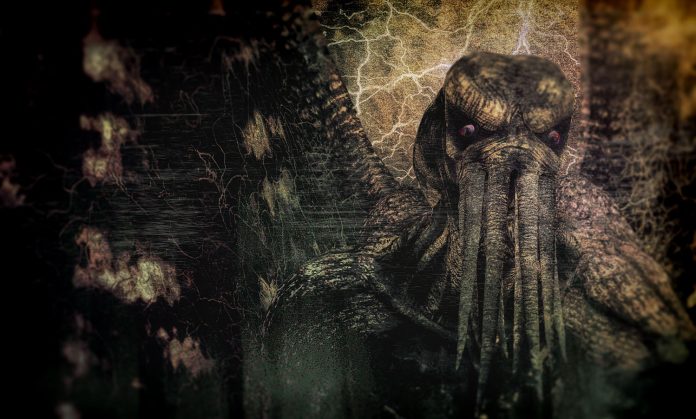A post on Industrial Scripts examines the elements of Lovecraftian horror and suggests ways to capture this subgenre in your writing. “Unlike traditional horror fiction, which often relies on physical or supernatural threats, a classic Lovecraft story explores psychological and philosophical themes such as madness, forbidden knowledge, and the limitations of human understanding,” the article explains. “Central to Lovecraftian fiction is the idea that the universe is vast and indifferent, populated by beings beyond human comprehension, like Cthulhu and Nyarlathotep. These entities are not malevolent but indifferent, highlighting humanity’s insignificance.”
In addition to those key elements, the right setting and atmosphere are vital to Lovecraftian horror. Lovecraft often used ancient cities and desolate coastal towns as the backdrop for his fiction, and described them in great detail while still leaving some aspects to the reader’s imagination. Lovecraft emphasizes the mental breakdown of his protagonists as they confront unknowable gods and their own insignificance.
Many writers have tread Lovecraft’s path, so you should start by looking for a unique twist on the mythos and its themes of forbidden knowledge and the universe’s indifference. In Nope, Jordan Peele mined Lovecraftian themes using a modern setting in the American west, seen through the POV of black cowboys. While Lovecraft generally focused on the destruction of his characters’ sanity, look for new twists on that tragedy or ways your characters can find enlightenment through horror. For additional inspiration, consider films such as John Carpenter’s The Thing, Guillermo del Toro’s The Shape of Water, and more recent films like The Lighthouse.
Balancing cosmic horror and character development isn’t easy. “While cosmic horror thrives on portraying the vast, indifferent universe and the terror it instills, this can sometimes overshadow the protagonist’s personal journey,” the article states. “To counteract this, intertwine the protagonist’s psychological journey with cosmic themes. Develop characters with rich psychological depth who confront these cosmic horrors in ways that reveal their vulnerabilities and personal growth.”












